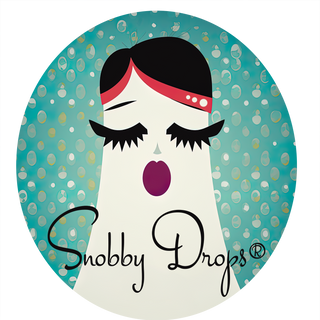undefined
Note: The content that follows is based on the "undefined" specifications provided. If you would like a customized article, please provide the title, keywords, structure, and other relevant details, and I would be happy to create a tailored blog post.
Introduction
In today's fast-paced and ever-evolving world, staying updated on the latest trends and information is crucial for both personal and professional growth. Whether you're seeking to expand your knowledge base or looking for strategies to enhance your skills, this comprehensive guide offers insightful perspectives and practical tips that cater to a wide range of interests and backgrounds.
The Importance of Continuous Learning
With rapid advancements in technology and industry, continuous learning has become a vital component of success. Embracing lifelong education allows individuals to keep up with changes, remain competitive in the job market, and fulfill personal growth objectives. From attending seminars and workshops to engaging with online courses, there are numerous ways to further your education and skill set.
Benefits of Lifelong Learning
- Career Advancement: Expanding your skillset, earning certifications, or mastering new technologies can open the door to new opportunities and promotions.
- Personal Fulfillment: Learning new subjects can be deeply rewarding and help boost confidence and curiosity.
- Adaptability: As industries evolve, staying informed enables you to comfortably adapt to new environments and requirements.
- Networking: Pursuing education introduces you to like-minded individuals, expanding your professional and personal networks.
Overcoming Common Learning Challenges
Despite the numerous advantages of continuous learning, it’s normal to face obstacles along the way. Recognizing these challenges and developing strategies to overcome them will help you make steady progress toward your goals.
Time Management
One of the most significant barriers is finding time for learning amidst busy schedules. To overcome this, set clear priorities, break down learning materials into manageable segments, and allocate specific time slots in your weekly schedule dedicated solely to educational pursuits.
Staying Motivated
Maintaining motivation can be difficult, especially over extended periods. Setting realistic, measurable goals and celebrating small achievements along the way can help keep you inspired. Joining study groups or online communities provides additional encouragement and accountability.
Learning Methods to Suit Every Style
Everyone learns differently. Understanding your own learning style will enhance retention and make the process more enjoyable.
Visual Learners
If you're a visual learner, diagrams, infographics, and videos will be especially useful. Make use of color-coded notes, mind maps, and illustrations to enhance comprehension.
Auditory Learners
Auditory learners benefit from listening to lectures, podcasts, or engaging in discussions. Consider reading aloud or recording notes to replay later.
Kinesthetic Learners
For those who prefer hands-on experience, interactive exercises, role-playing, and physical activities are ideal. Look for workshops, models, and projects that encourage active engagement.
Incorporating Technology into Your Learning Journey
Technology has transformed the way we access and interact with information. Here are some ways to leverage digital tools for effective learning:
- Online Courses: Explore platforms offering diverse subjects, from technology and business to art and language.
- Educational Apps: Use apps designed to reinforce learning through quizzes, flashcards, and interactive content.
- Virtual Reality (VR): Participate in immersive simulations for subjects like science, history, and medicine.
- Webinars and Podcasts: Stay updated on current trends, best practices, and expert insights in your field of interest.
- Cloud Collaboration: Work on group projects and access learning materials from anywhere.
Setting and Achieving Learning Goals
Effective goal setting is an essential part of an impactful learning experience. Begin by identifying what you want to achieve, set measurable targets, and track your progress over time.
SMART Goals Framework
- Specific: Define exactly what you want to accomplish.
- Measurable: Quantify your goals to track progress.
- Achievable: Set goals that are challenging but realistic.
- Relevant: Ensure your goals align with your broader aspirations.
- Time-bound: Set deadlines to prioritize and stay on track.
Networking and Community Engagement
Building connections with others who share your interests can provide invaluable support and motivation. Engage in professional networks, online forums, and community events. Sharing knowledge and experiences not only deepens your own understanding, but also helps others in their learning journey.
The Power of Mentorship
Mentorship is a reciprocal relationship where experienced individuals guide learners toward their goals. Seek out mentors in your community or profession; their insights and feedback can accelerate your development and help you navigate challenges more effectively.
Evaluating Progress and Adapting Strategies
Regular self-assessment keeps your learning journey aligned with your goals. Take time to evaluate progress, celebrate successes, and identify areas for improvement. Be open to adapting your strategies based on what works best for you.
Reflective Practice
Set aside time to reflect on what you’ve learned and how you’ve applied new knowledge. This habit reinforces understanding and helps transfer skills into real-world contexts.
Conclusion
Continuous learning is the key to personal and professional growth in a world of constant change. By embracing diverse learning methods, leveraging technology, and engaging with your community, you can overcome challenges and achieve your goals with confidence. Start your lifelong learning journey today, and unlock your full potential!


